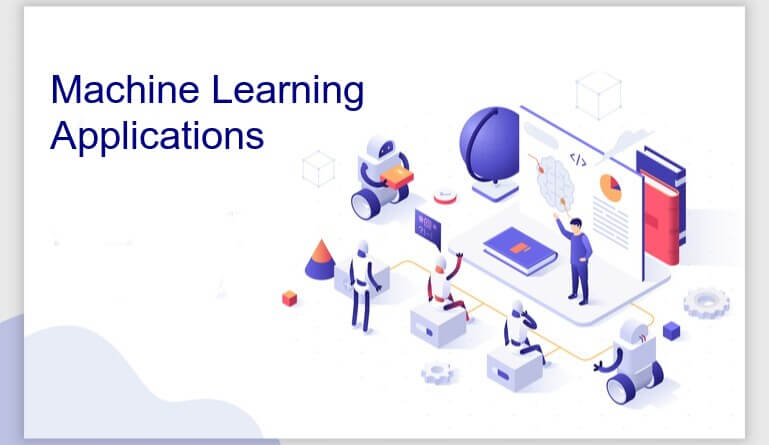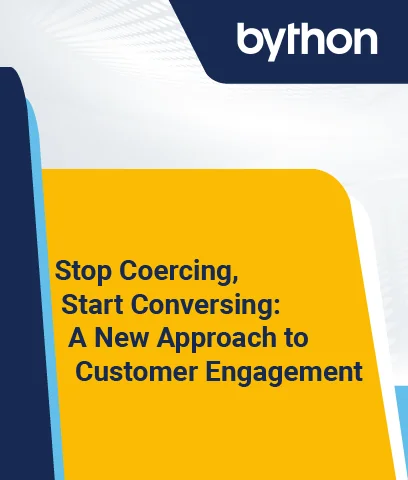Machine learning has advanced from the age of science fiction to a major component of modern enterprises, especially as businesses across almost all sectors use various machine learning technologies. As an example, the healthcare industry is utilizing machine learning business applications to achieve more accurate diagnoses and provide better treatment to their patients.
Retailers also use machine learning to send the right goods and products to the right stores before it is out of stock. Medical researchers are also not left out when it comes to using machine learning as many introduce newer and more effective medicines with the help of this technology. Many use cases are emerging from all sectors as machine learning is being implemented in logistics, manufacturing, hospitality, travel and tourism, energy, and utilities.
Here are the 10 Common Uses for Machine Learning Used in Business to Solve Problems and Deliver Tangible Business Benefits
-
Real-time chatbot systems
Chatbots are one of the foremost forms of automation. They have closed the communication gap between humans and technology by making it possible for us to communicate with machines that can then execute actions according to the requirements or requests voiced by individuals. The first generations of chatbots were designed to follow scripted rules that instructed the bots on what actions to execute based on certain keywords.
However, ML (machine learning) and NLP (natural language processing), which are another part of the AI technology body, enable chatbots to be more productive and more interactive. These new sets of chatbots respond better to the needs of users and communicate increasingly more as real human beings. Some remarkable examples of contemporary chatbots include the following: Alexa, Google Assistant, Siri, Watson Assistant, and chat platforms on riders’ request service.
-
Decision support
This is another aspect where machine learning business applications can assist organizations in turning the bulk of data they have into useful and executable insights that offer value. In this area, algorithms that have been trained on several relevant data sets and historical data are able to analyze information and process numerous possible scenarios at a scale and speed impossible for humans to recommend the best course of action to adopt. Decision support systems are being used in several industry sectors, some of which include: the healthcare industry, agricultural sector, and business.
-
Customer recommendation engines
ML powers the customer recommendation engines built to deliver customized experiences and improve the overall customer experience. Here, algorithms analyze data points about each customer, including the customer’s previous purchases, and other data sets like demographic trends, an organization’s present inventory, and the purchase histories of other customers in order to know what services and products to offer as recommendations to each individual customer. The following are a few examples of businesses whose enterprise models are based on recommendation engines: Amazon, Walmart, Netflix, and YouTube.
-
Customer churn modeling
Businesses also utilize machine learning and AI to identify when a customer’s loyalty is starting to diminish and to find strategies to resolve it. In this use case, the enhanced machine learning business applications assist businesses in dealing with one of the longest and most common enterprise problems: customer churn.
In this way, algorithms identify trends in massive volumes of sales, historical and demographic data to pinpoint and understand the reason behind a company’s loss of customers. The organization can then use ML capabilities to evaluate patterns among existing customers to find out which customers are likely to abandon the business and go somewhere else, identify the reasons behind those customers’ decision to leave, and then determine the necessary steps the business should take in order to retain them.
The following companies are examples of businesses that utilize churn modeling: The Wall Street Journal, Bloomberg News, The New York Times, Spotify, HBO, Amazon, Netflix, Salesforce, and Adobe.
-
Dynamic or demand pricing strategies
Businesses can begin mining their historical pricing data alongside data sets on a plethora of other variables in order to understand how some particular dynamics – from season to weather to the time of the day – influence demand for products and services.
ML algorithms can learn from such data and combine the insight with more consumer and market data to assist businesses to dynamically price their products in line with those wide and plenty variables — a tactic that eventually enables businesses to maximize their revenue.
The most evident example of demand pricing or dynamic pricing can be seen in the transportation sector. The surge pricing at Bolt and Uber exemplifies this.
-
Customer segmentation and market research
Not only do machine learning business applications help businesses in setting prices; they also assist businesses to provide the appropriate goods and services to the appropriate areas at the appropriate time via customer segmentation and predictive inventory planning.
For example, retailers utilize ML to predict the inventory that will sell the most in which of its outlets depending on the seasonal conditions influencing a certain outlet, the demographics of that area, and other data points – like the trending news on social media. This machine learning application can be used by everyone! From the insurance industry to Starbucks.
-
Fraud detection
The ability of machine learning to decipher patterns – and to immediately detect anomalies that manifest outside those trends – makes it an excellent tool for identifying fraudulent activities.
As a matter of fact, businesses in the financial sector have successfully been utilizing ML in this aspect for years. The use of machine business applications in fraud detection can be seen in the following industries: retail, gaming, travel, and financial services.
-
Image classification and image recognition
Companies have started turning to neural networks, deep learning, and machine learning to assist them to make meaning of images. The application of this machine learning technology is wide – from Facebook’s intention to tag pictures posted on its platform, to the drive of security teams to detect criminal activities in real-time, to the need for automated cars to see the road.
-
Operational efficiencies
While some ML use cases have a high specialization, a lot of companies are adopting the technology to assist them in managing routine enterprise processes, such as software development and financial transactions. According to Guptill, “The most widely seen use cases in my experience (so far) are in enterprise finance organizations, manufacturing systems and processes, and, most impactfully, software development and testing.
And almost every case occurs within grunt work”. ML is used by several business departments to drive efficiency, including operations teams, finance firms and departments, and IT departments that can utilize machine learning as a component of its automation of software testing to greatly increase and enhance that process.
-
Data extraction
ML with natural language processing will automatically gather crucial pieces of structured information from documents even if the necessary data is stored in semistructured or unstructured formats. Businesses can make use of this ML application to process anything from invoices to tax documents to legal contracts, leading to enhanced accuracy and higher efficiency in such processes and consequently freeing human employees from monotonous, repetitive tasks.
Final Thoughts
In all, machine learning business applications are rapidly being used in businesses for many great reasons. They improve accuracy and reduce errors, fast-track the work process, and make the overall experience enjoyable for both the customers and employees.
This is why more innovation-oriented companies are looking for ways to incorporate machine learning to drive new business opportunities that will make their brand stand out in the marketplace. Join some of the world’s leading brands in leveraging the abundant opportunities provided by ML business applications today.







